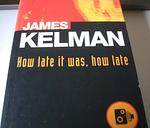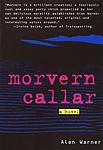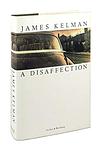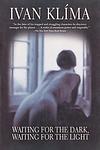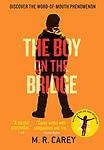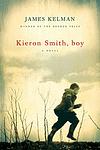The Greatest Czech, Scottish "Fiction" Books Since 1970
Click to learn how this list is calculated.
This list represents a comprehensive and trusted collection of the greatest books. Developed through a specialized algorithm, it brings together 300 'best of' book lists to form a definitive guide to the world's most acclaimed books. For those interested in how these books are chosen, additional details can be found on the rankings page.
Genres
Countries
Date Range
Reading Statistics
Click the button below to see how many of these books you've read!
Download
If you're interested in downloading this list as a CSV file for use in a spreadsheet application, you can easily do so by clicking the button below. Please note that to ensure a manageable file size and faster download, the CSV will include details for only the first 500 books.
Download-
1. The Unbearable Lightness of Being by Milan Kundera
Set against the backdrop of the Prague Spring period of Czechoslovak history, the novel explores the philosophical concept of Nietzsche's eternal return through the intertwined lives of four characters: a womanizing surgeon, his intellectual wife, his naïve mistress, and her stoic lover. The narrative delves into their personal struggles with lightness and heaviness, freedom and fate, love and betrayal, and the complexities of human relationships, all while offering a profound meditation on the nature of existence and the paradoxes of life.
-
2. Franz Kafka: The Complete Stories by Franz Kafka
This collection of stories offers a comprehensive look at the work of a renowned author, known for his surreal and often unsettling depictions of modern life. The stories explore themes of existential anxiety, guilt, and absurdity, often through narratives in which ordinary people face extraordinary, inexplicable circumstances. The collection showcases the author's unique style and his profound influence on 20th-century literature.
-
3. Lanark by Alasdair Gray
"Lanark" is an unconventional narrative that combines elements of fantasy, dystopia, and realism. The protagonist, a man named Lanark, moves through two parallel existences. In one, he's a young man named Duncan Thaw in post-war Glasgow, struggling with his artistic ambitions and personal relationships. In the other, he's Lanark in the grim, bureaucratic city of Unthank, suffering from a mysterious skin condition and grappling with his identity and purpose. The novel explores themes of love, alienation, creativity, and the human condition, presenting a complex and thought-provoking portrait of life and society.
-
4. The Book of Laughter and Forgetting by Milan Kundera
This novel is a blend of fiction, autobiography, and philosophical musings that explores the nature of forgetting, the power of laughter, and the struggle for personal and political freedom. Set against the backdrop of the political turmoil in Czechoslovakia in the 20th century, it follows the interconnected stories of various characters, including a man who is expelled from the Communist Party, a young woman in love with a man whose father was a political prisoner, and a couple who flee to America. Throughout, the book delves into the ways in which personal and collective memories shape identity and history.
-
5. Trainspotting by Irvine Welsh
This novel is a gritty, raw portrayal of a group of heroin addicts living in Edinburgh, Scotland. The narrative is non-linear and told from multiple perspectives, providing a deep dive into the minds and lives of these characters. The story explores themes of poverty, addiction, friendship, and the struggle to escape one's circumstances, all set against the backdrop of a bleak urban landscape. It is known for its strong Scottish dialect, graphic content, and dark humor.
-
6. How Late It Was, How Late by James Kelman
The novel is a stream-of-consciousness narrative told from the perspective of Sammy, a shoplifter and ex-convict from Glasgow who wakes up in an alley after a two-day drinking binge to find he is completely blind. As Sammy struggles to navigate his new reality, he contends with bureaucratic systems, confronts his past, and grapples with his relationships, all while trying to understand and adjust to his sudden loss of sight. The story is a gritty exploration of working-class life, the human condition, and the nature of reality.
-
7. I Served The King Of England by Bohumil Hrabal
"I Served The King Of England" is a captivating novel that follows the life of a young Czech waiter named Ditie, who dreams of becoming a millionaire and serving the highest-ranking clientele. Set against the backdrop of World War II and the Communist regime, the story takes readers on a journey through Ditie's experiences in various hotels and restaurants, his encounters with eccentric characters, and his pursuit of love and success. With humor, wit, and a touch of satire, the book explores themes of ambition, identity, and the impact of historical events on an individual's life.
-
8. The No. 1 Ladies' Detective Agency by Alexander McCall Smith
The book follows the story of Precious Ramotswe, a woman in Botswana who opens the country's first and only female-run detective agency. She uses wisdom, intuition, and her understanding of human nature to solve various cases, from missing husbands to wayward daughters and con men. The story is not just about solving mysteries, but also provides a deep insight into the culture, landscape and people of Botswana.
-
9. Morvern Callar by Alan Warner
The novel follows the story of Morvern Callar, a young woman living in a small Scottish port town, who wakes up one Christmas morning to find her boyfriend has committed suicide. Instead of reporting his death, she decides to erase all evidence of it, appropriates his unpublished novel as her own, and uses his money to go on a holiday in Spain. The book explores themes of grief, identity, and personal transformation, as Morvern navigates her way through life with a detached and indifferent attitude.
-
10. Consider Phlebas by Iain Banks
"Consider Phlebas" is a science fiction novel set in a vast and chaotic universe where different civilizations and species clash. The story follows a protagonist named Bora Horza Gobuchul, a shape-shifting mercenary who becomes entangled in a dangerous mission to retrieve a powerful artifact from a religious cult. As Horza navigates treacherous alliances and battles, he also grapples with questions of identity, loyalty, and the nature of humanity. With its epic scope and thought-provoking themes, the novel explores the complexities of war, morality, and the search for meaning in a universe teetering on the brink of destruction.
-
11. The Engineer of Human Souls by Josef Škvorecký
The novel is a semi-autobiographical narrative of a Czechoslovakian writer who has become a professor at a Canadian university, teaching American literature. The narrative switches between his current life in Canada and his memories of the past in Czechoslovakia, including the Nazi occupation and the Communist regime. The book presents a complex portrayal of the life of an intellectual in exile and the challenges of cultural assimilation, while also exploring themes of love, politics, and the power of literature.
-
12. Use Of Weapons by Iain Banks
"Use of Weapons" is a gripping science fiction novel that follows the life of a skilled and enigmatic mercenary named Cheradenine Zakalwe. The story alternates between two timelines, exploring Zakalwe's dangerous missions and his troubled past. As the narrative unfolds, secrets are revealed, and the true nature of Zakalwe's character is gradually unveiled, leading to a shocking and thought-provoking conclusion. With its intricate plot, complex characters, and philosophical undertones, this book offers a thrilling and introspective exploration of war, morality, and the human condition.
-
13. Cutting It Short by Bohumil Hrabal
Set in a small Czech town during the 1920s, the narrative follows the life of a vivacious and free-spirited young woman married to the town's brewery manager. Her playful and unconventional behavior often leads to humorous and sometimes scandalous situations, as she navigates through the social norms and expectations of the time. The story captures the charm and eccentricities of rural life through a series of anecdotes, reflecting on the themes of freedom, tradition, and the joy of the everyday. The protagonist's zest for life and her interactions with the colorful cast of characters create a whimsical and endearing portrait of a community on the brink of modernization.
-
14. Too Loud A Solitude by Bohumil Hrabal
The narrative centers around an elderly man who has spent his life compacting paper and books into bales in a decrepit cellar, using a hydraulic press. Despite the menial nature of his job, he has cultivated a deep love and profound knowledge for literature, philosophy, and art from the books that pass through his hands, many of which he rescues from destruction. The story is a poignant exploration of the power and resilience of the human spirit in the face of a dehumanizing, totalitarian regime, and a meditation on the enduring value of art and the written word. The protagonist's intellectual journey and his resistance to the oppressive forces around him serve as a metaphor for the survival of culture and individuality under oppressive conditions.
-
15. A Disaffection by James Kelman
"A Disaffection" is a thought-provoking novel that delves into the mind of Patrick Doyle, a disillusioned schoolteacher living in Glasgow. As he navigates through his mundane existence, Patrick's internal monologue exposes his deep-rooted dissatisfaction with society, his job, and his relationships. Through a raw and introspective narrative, the book explores themes of alienation, identity, and the struggle to find meaning in a world that seems devoid of purpose.
-
16. Waiting for the Dark, Waiting for the Light by Ivan Klíma
The novel is set in the twilight of Communist rule in Czechoslovakia and follows the life of a television cameraman named Pavel. Despite his dreams of becoming a filmmaker and capturing the truth, he is trapped in a job that requires him to distort it. As the regime starts to crumble, Pavel grapples with the opportunities and challenges that freedom brings. He is forced to confront his past, his moral choices, and his dreams, leading to a deep exploration of the human condition and the struggle for personal and artistic freedom.
-
17. City, Sister, Silver by Jáchym Topol
This novel follows the journey of a young Czech man, Potok, as he navigates the tumultuous period of the Velvet Revolution and its aftermath. The story is filled with surreal and often disturbing imagery as it explores themes of chaos, transformation, and the struggle for identity in a rapidly changing world. Potok's adventures take him from the crumbling infrastructure of post-communist Czechoslovakia to the burgeoning world of Western Europe, and his experiences reflect the larger societal upheaval of the time.
-
18. The Bridge by Iain Banks
The novel is a surreal and complex tale that weaves together multiple narratives and genres, centered around a man who awakens with amnesia on a massive, never-ending bridge that spans an entire world. As he tries to recover his memories and understand his place within this bizarre and sprawling structure, the story delves into his past life, exploring themes of identity, mental health, and the nature of reality. The bridge itself serves as a metaphor for the protagonist's mind and the divisions within it, with various sections representing different aspects of his psyche and history. Through its intricate plot and rich symbolism, the book challenges readers to consider the constructs of the self and the intricate connections between our inner and outer worlds.
-
19. Personality by Andrew O'Hagan
"Personality" by Andrew O'Hagan is a thought-provoking exploration of identity and fame in the digital age. The book follows the story of a famous actress who decides to create a digital replica of herself to preserve her legacy. As the replica interacts with fans and becomes more popular, it raises questions about authenticity, privacy, and the blurred lines between reality and virtuality. With O'Hagan's sharp writing and insightful observations, "Personality" delves into the complexities of modern fame while challenging readers to reflect on the nature of self in an increasingly interconnected world.
-
20. Kieron Smith, Boy by James Kelman
"Kieron Smith, Boy" is a novel that explores the life and mind of a young boy growing up in a working-class family in post-war Glasgow. The narrative is presented from the boy's perspective and is marked by his unique voice and thought process. The story follows his experiences at home, at school, and in the larger world, his struggles with societal expectations, and his dreams of becoming a shipbuilder. The book is a poignant portrayal of childhood, exploring themes of class, identity, and the complexities of growing up.
-
21. Trumpet by Jackie Kay
"Trumpet" is a novel that explores the complexities of identity and love through the life of Joss Moody, a celebrated jazz trumpeter who, upon his death, is revealed to have been biologically female. The revelation shocks his public and his family, particularly his wife Millie, who had kept his secret for decades, and their son Colman, who feels betrayed and angry. The narrative delves into the perspectives of various characters, including a tabloid journalist eager to exploit the story, as they grapple with their memories of Joss and their own identities in light of the truth. The novel poignantly addresses themes of gender, secrecy, and the intricate dynamics of familial relationships.
-
22. Identity: A Novel by Milan Kundera
"Identity: A Novel" is a philosophical exploration of the complexities of love, identity, and the human psyche. It revolves around the lives of two lovers, Chantal and Jean-Marc, who are living in Paris. As their relationship progresses, they grapple with existential questions, the nature of identity, and the fear of oblivion. The novel delves into their individual and shared insecurities, their perceptions of each other, and how these perceptions shape their identities. The narrative offers a profound reflection on the intricacies of human relationships, the concept of self, and the role of memory and imagination in identity formation.
-
23. Shuggie Bain by Douglas Stuart
"Shuggie Bain" is a heart-wrenching tale set in 1980s Glasgow, Scotland, centered on a young boy, Shuggie, who is struggling with his mother's deteriorating mental health and alcoholism. As he tries to navigate his own burgeoning sexuality in a harsh, unforgiving environment, he also strives to care for his mother, who is trapped in a cycle of addiction and abusive relationships. The book gives a stark portrayal of poverty, addiction, love, and the human spirit's resilience.
-
24. The Night Sessions by Ken MacLeod
This science fiction novel delves into a future where the world has largely moved beyond religion, following devastating religious wars. Set in a technologically advanced society, the story follows a police investigation led by Detective Inspector Adam Ferguson into a series of bombings. These attacks seem to be motivated by religious extremism, a concept thought to be a thing of the past. As Ferguson digs deeper, he uncovers a conspiracy that challenges the secular foundations of his world, involving robots and artificial intelligences who have developed their own faiths. The narrative explores themes of faith, science, and the nature of belief in a society where technology has reshaped every aspect of human life.
-
25. Judge On Trial by Ivan Klima
"Judge on Trial" is a novel that delves into the life of Adam Kindl, a judge in Communist Czechoslovakia who is struggling with the moral dilemmas of his profession and personal life. As he presides over a politically charged case, Kindl grapples with the oppressive regime's influence on justice and his own sense of integrity. The narrative explores themes of power, corruption, and the quest for truth, while also examining the complexities of love, fidelity, and the human condition. Through Kindl's introspective journey, the novel provides a poignant critique of the judicial and political systems of the time.
Reading Statistics
Click the button below to see how many of these books you've read!
Download
If you're interested in downloading this list as a CSV file for use in a spreadsheet application, you can easily do so by clicking the button below. Please note that to ensure a manageable file size and faster download, the CSV will include details for only the first 500 books.
Download




